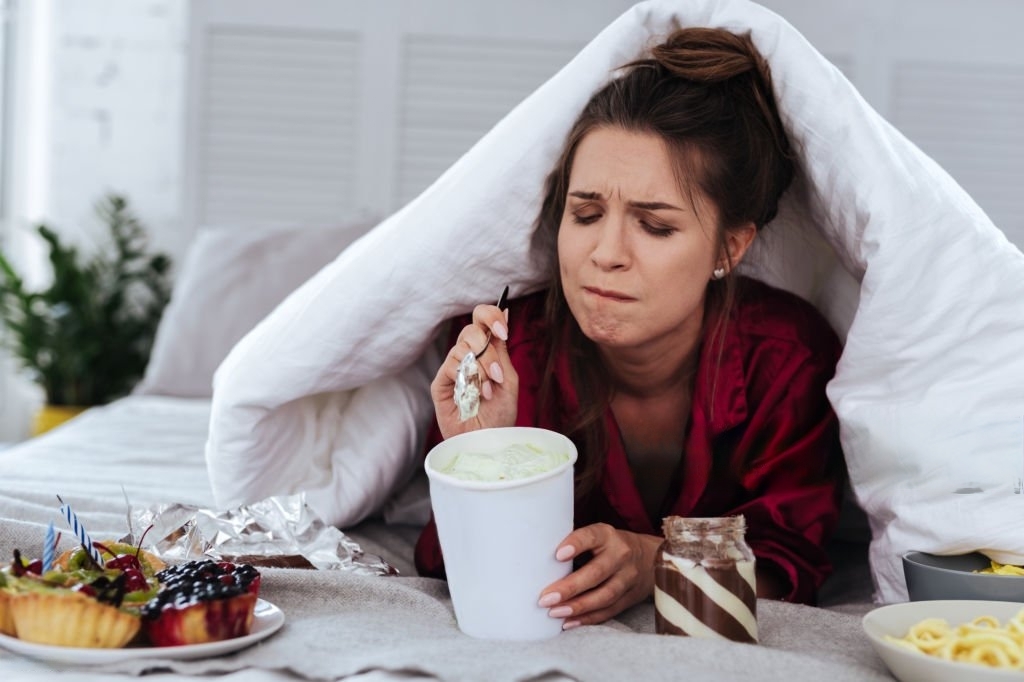Stress eating, also known as emotional eating, is a common reaction to life’s difficulties and demands. When stress becomes unbearable, many people resort to comfort foods for solace and distraction. This poor coping style can result in weight gain and a variety of other health problems. In recent years, there has been a growing trend toward natural solutions to counteract stress eating. Slimming tea is one such approach that is gaining favor. In this post, we will look at the potential benefits of slimming tea for stress eating and how it might help with general well-being.
Understanding Stress-Related Eating

Stress eating is a practice in which people eat food that is high in sugar and unhealthy fats in response to emotional stimuli such as stress, worry, boredom, or sadness. People frequently seek the soothing and joyful sensations that food can bring to temporarily escape their troubles. This can lead to overeating and an increase in calorie consumption, which can contribute to weight gain.
The Impact of Stress on Weight Gain
Chronic stress can hurt both our physical and mental health. When we are stressed, our bodies release cortisol, a hormone that can cause an increase in appetite, especially for comfort foods. Stress also interrupts our sleep cycles, which exacerbates the problem because lack of sleep has been related to weight growth. Furthermore, stress eating might elicit feelings of guilt and remorse, worsening emotional distress.
Slimming Tea as a Stress-Relieving Food
Slimming teas, which are frequently based on components such as green tea, oolong tea, and herbal mixes. Have gained popularity for their ability to reduce stress eating. These teas have numerous mechanisms that can help people better manage stress and emotional eating:
Calming Effects: Many slimming teas, particularly those containing herbs such as chamomile and lavender. They are known for their calming and soothing characteristics. A warm cup of tea can be a relaxing ritual that helps people relax and relieve tension.
Reduced hunger: Certain substances contained in slimming teas, such as EGCG (epigallocatechin gallate) in green tea, may suppress hunger. When people are worried, this can help them avoid overeating.
Improved Digestion: Herbal teas such as ginger or peppermint can help with digestion, reducing the discomfort and bloating that typically accompany emotional eating.
Hydration: Staying hydrated is critical for general health. Replacing sugary beverages with slimming tea might help people stay hydrated, which is often ignored during stressful times.
Mindfulness: Making and appreciating a cup of tea can be a mindful practice that redirects people’s attention away from stressors and onto the present moment, fostering emotional balance.
While slimming teas can be a useful component of a stress-eating reduction approach, they should not be depended on as a solitary cure. A variety of measures, such as regular physical activity, meditation, counseling, and a balanced diet, should be used for effective stress management.
Selecting the Best Slimming Tea.
Choosing the Right Slimming Tea
When contemplating slimming tea as a stress-eating help, it’s critical to select high-quality, trustworthy products made with natural components. Furthermore, be wary of unrealistic claims of rapid weight loss, as these may be unsupported by scientific evidence.
In summary
Stress eating is a widespread problem that can lead to weight gain and other health issues. While there is no magic method to eliminate stress eating. Integrating slimming tea into your stress management routine might be a helpful step toward improved emotional eating control. Slimming tea can be a great aid in your search for a healthier. More balanced relationship with food by delivering a peaceful and comfortable experience, reducing hunger, and boosting awareness. Remember, for the best outcomes, combine this strategy with a comprehensive approach to stress management.